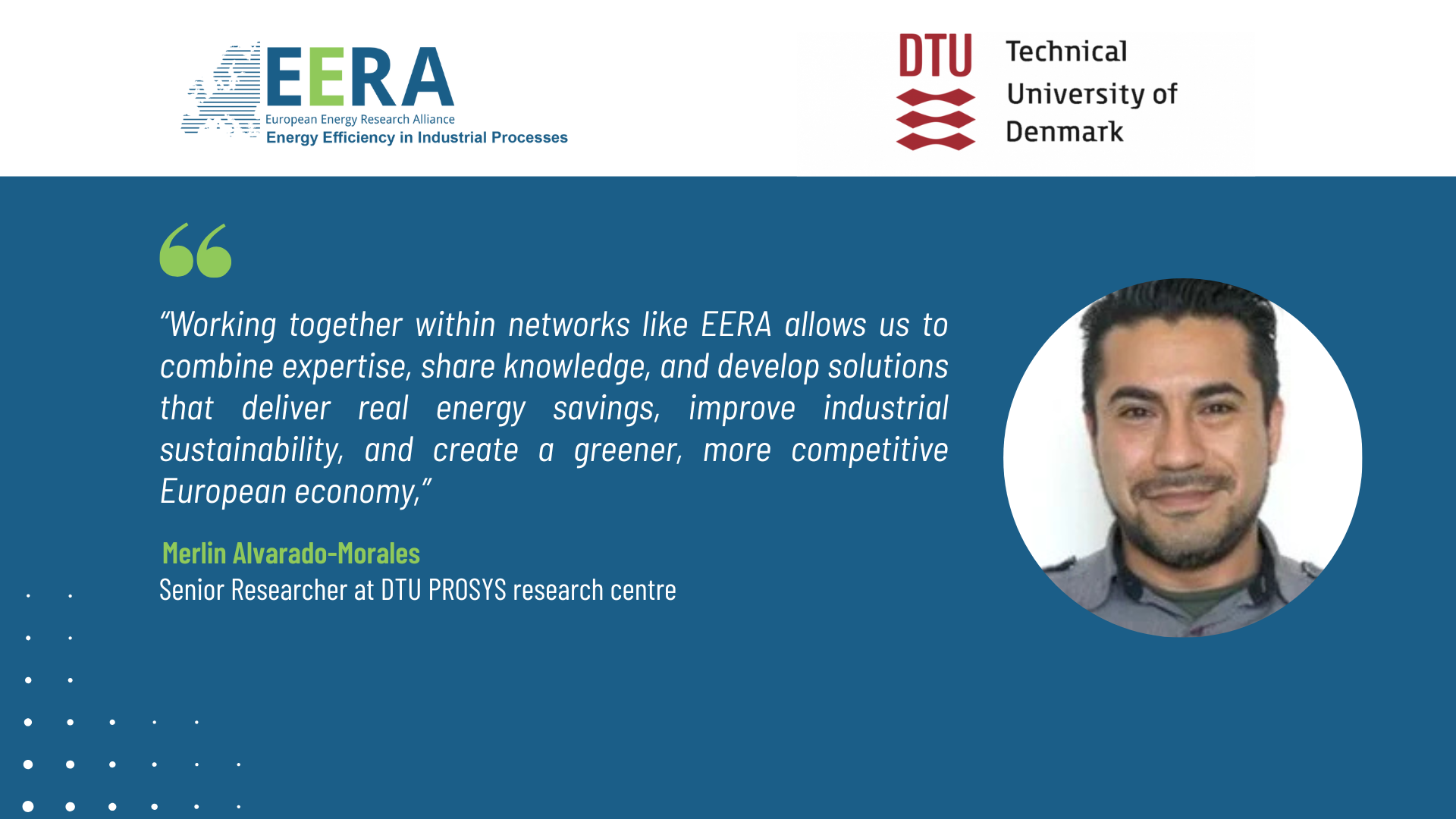
The Technical University of Denmark (DTU) plays an important role in the work of EERA’s Joint Programme Energy Efficiency in Industrial Processes (JP EEIP). In particular, the research of DTU’s PROSYS research centre closely supports the Joint Programmes’ mission to reduce energy consumption and greenhouse gas emissions in energy-intensive industries, with a strong focus on optimising processes, exploring alternative energy sources, and recovering and reusing excess energy.
Through its active participation, the research centre contributes specialised knowledge to the collaborative European effort that is JP EEIP, helping to accelerate the development and adoption of energy-efficient technologies.
Its continuous work in providing scientific guidance, developing practical innovations, and building partnerships with industry and academia helps strengthen the JP’s efforts to propel progress in energy efficiency across Europe.
A true commitment to energy efficiency
The DTU PROSYS research centre is driven by a deep-seated commitment to fostering a sustainable and decarbonised European industry, bringing a unique set of capabilities to the work of EERA JP EEIP.
At the core of its expertise is Process Systems Engineering (PSE), together with developing sustainable (bio)chemical production processes and the digitalisation of industrial operations. Delving deeper, it centres its efforts on creating advanced methods and tools for modelling, simulating, synthesising, designing, analysing, controlling, and operating processes across diverse industries, ranging from chemical and pharmaceutical to food and energy technology. Undeniably reflecting its wide-ranging capacities and experience, DTU PROSYS also brings fundamental expertise in applied thermodynamics, chemical reaction engineering, and transport phenomena, with practical applications in areas such as process-product synthesis, design, control/monitoring, and optimisation of various processes across different scales as well as bio-manufacturing.
A strong embodiment of the research centre’s commitment to energy efficiency is the ProSafe project, which integrates Process Systems Engineering (PSE) with Machine Learning (ML) to develop cutting-edge methods and tools towards significantly improving process safety and operational efficiency. This work is crucial, leading to safer, more reliable, and more energy-efficient industrial environments.
A key driver of JP collaboration and growth
Aligned with JP EEIP’s core objective of accelerating an energy-efficient industrial transition, the research and work of DTU PROSYS across a spectrum of interconnected disciplines continues to flourish.
Of particular note, the research centre is dedicated to contributing to the next EERA JP EEIP white paper and pursuing opportunities for participation in EU-funded projects. Building further, it prioritises network expansion, actively collaborating with other leading European research institutions and industrial stakeholders to ensure its research outcomes are effectively translated into real-world applications and inform policy recommendations. From a scientific lens, the centre aims to further integrate cutting-edge digitalisation, Artificial Intelligence (AI), and Machine Learning (ML) into industrial processes to enable smarter and more efficient energy management systems.
Looking ahead: Energy efficiency as a critical engine for a sustainable, competitive and resilient future
For DTU PROSYS, the importance of energy efficiency in industrial processes cannot be understated. Energy efficiency isn't just an environmental necessity; it remains essential for boosting Europe’s economic competitiveness and resilience.
“To move towards a more sustainable and energy-efficient future, it is essential to build strong collaboration among academia, industry, and policymakers across Europe,” says Merlin Alvarado-Morales, Senior Researcher at DTU PROSYS research centre. “Working together within networks like EERA allows us to combine expertise, share knowledge, and develop solutions that deliver real energy savings, improve industrial sustainability, and create a greener, more competitive European economy,” he concludes.
As JP EEIP strengthens its key role in aligning research efforts to accelerate the industrial transition towards lower emissions and greater efficiency, DTU PROSYS research centre remains committed to contributing knowledge, driving innovation, and working with partners across the continent to advance joint research and innovation that supports decarbonisation in a critical sector for a sustainable, resilient, and competitive Europe.